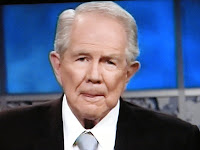 We were discussing the passage in Candide in which Candide asks the dervish for an explanation of the evil in the world. Just before the dervish slams the door in our poor boy's face, the whirling magus shouts, "What does it matter...whether there's good or evil? When his highness sends a ship to Egypt, does he worry whether the mice on board are comfortable or not?" I noticed that my best student was smiling and shaking her head.
We were discussing the passage in Candide in which Candide asks the dervish for an explanation of the evil in the world. Just before the dervish slams the door in our poor boy's face, the whirling magus shouts, "What does it matter...whether there's good or evil? When his highness sends a ship to Egypt, does he worry whether the mice on board are comfortable or not?" I noticed that my best student was smiling and shaking her head.I pounced. "So you disagree, XX?"
"Not exactly, but I don't like the metaphor."
"Why not? Do you believe in a good God?" I asked.
"No," my student replied, "not in a 'good' God, but in a god of some sort. And 'ships' and 'mice' are much too substantial. God has put us in this unimaginably large box--the universe--and occasionally he watches us. Sometimes he fiddles around with us, for his amusement or just to see what might happen."
"So, can we influence him in some way--in order to get him to be nice to us as opposed to other creatures?"
"Nah" she laughed. "We're much too tiny and insignificant. God doesn't really have any emotional attachment to us--and by the way, there are lots of other life-forms on other planets in this box. God can't even see us except through a very powerful microscope. We're a kind of science project for God."
"Well, isn't your belief just another version of 18th Century deism?" I continued.
"Maybe. But didn't the deists believe that God had created some rules that would always apply--natural laws? I don't think that the God who set up this box had any rules at all in mind. He was just messing around with a bunch of stuff--and threw it all together (Big Bang). It's possible, actually, that his experiment has got a little out of hand. You know--expanding universe, space/time continuum. He may not have foreseen that and he might not know quite what to do with it, but I guess he continues to find it entertaining and basically harmless."
"In your view, then, what significance does this god have for human beings?" I was beginning to get exasperated.
"No significance, really. There's a remote chance that Earth might randomly show up under his microscope. And, in such a scenario, if the collective behavior of Earthlings seems in any way "remarkable" or "interesting," there's an even more remote chance that he might jiggle things up a bit. But basically, we're just in this alone."
 "Should human beings be trying to accomplish anything collectively or individually? Should we have some sort of common goal?" The great existential question, at last.
"Should human beings be trying to accomplish anything collectively or individually? Should we have some sort of common goal?" The great existential question, at last.She paused. "Well, it seems impossible, but I think we should do our best to devise a way to get out of the box. Outside the box, we would be a little bit like God, wouldn't we?"
"Hmm." I replied. "But isn't it likely that we couldn't survive outside the box's environment? And how can part of an experiment 'get out of' the experiment?"
"Dunno," she admitted. "Well, I suppose the only other alternative is to work together with other Earthlings to try to transform Earth into something so 'remarkable' or 'interesting' that it might attract God's attention and, potentially, his curious 'messing around.'"
"But what if that 'messing around' made things worse rather than better for us?" I fretted.
"Sounds like you're a Republican. Are you?" she laughed.
Dunno.


















.jpg)





